Interview: Sir Robert Naylor, chief executive, University College London Hospitals
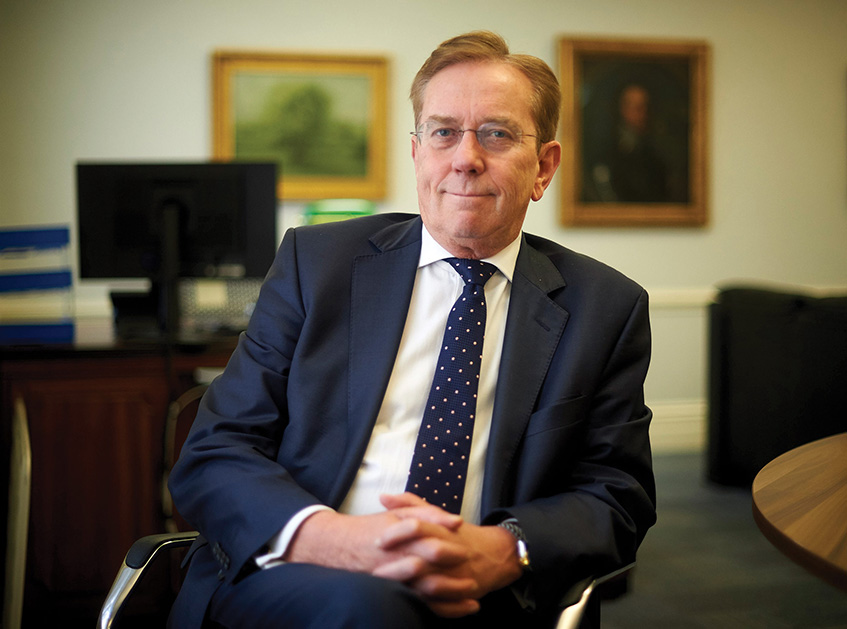
We talk to the chief exec’s chief exec, UCLH’s Sir Robert Naylor, about his 45-year NHS career and the prospects for aspiring leaders.
Few NHS leaders can offer as wide a range of perspectives on NHS management as Sir Robert Naylor. In over 30 years as a chief executive – the last 16 at University College London Hospitals Foundation Trust (UCLH) – he has seen more than a dozen health secretaries come and go, the ebb and flow of good times and austerity, and both centralisation and decentralisation fall in and out of fashion.
Now in his mid-sixties and just a month after stepping down from running UCLH, he’s thinking about what he can do over the next 15 years. And the answer seems to be anything but retirement. His current project with NHS Estates involves identifying property that can be sold off to raise £2bn for reinvestment in services and provide 26,000 new homes. The review is national but strongly focused on London, which accounts for 60% of the value of property under review. This also involves looking at ways to make progress on a number of high-profile London developments which he says have become “stuck in the system”.
Naylor is also involved in a number of overseas enterprises. “The challenges in healthcare are pretty much the same around the world,” he says. “The answers are fairly common, but people have different nuances… Certainly, in relation to the management of hospitals, the answers are pretty much the same.”
For example, there is a huge gap in professional training and development in healthcare in the Middle East, he explains, in part because many doctors working there were trained abroad. Naylor helped set up one company that offers continuing professional development (CPD) by flying in eminent British doctors to hold masterclasses in the Middle East. A radiology company – set up while he was at UCLH – is about to be sold, reaping a windfall profit for the trust.
Following in the footsteps of his father and uncle, Naylor joined the NHS as a graduate trainee but could easily, he says, have ended up working in a different sector. “I applied for a number of graduate programmes and the NHS came up first!”
Training in those days was more like an apprenticeship, he explains, with a mix of education and time spent on the “shop floor” – often in quite menial jobs. This was an advantage in his later career, as no one could claim “you don’t know what these jobs are like”.
One example was working as a nursing auxiliary on an elderly care ward, looking after dementia patients. “They are very challenging jobs. You don’t appreciate that until you’ve done it,” he says. “I’ve always had an affinity for the porters and the domestics because I know how hard their jobs are.” He adds that this experience taught him that a trust chief executive has to “represent the interests of the people who work there”.
Naylor has a reputation for speaking truth to power – something which doesn’t always guarantee a long career as a chief executive. He admits he has been lucky not to be as dependent on his NHS job as many others: property investments have given him an alternative income stream.
“Some people have commented that my job was easier because I had other sources of income. I agree that I could be more outspoken in my views because my children’s education and mortgage payments were not always on the line. It does help if you have a degree of financial security,” he says.
“It helps you to make the right decision rather than one that may be popular or expedient. So, often it’s easy to compromise because a difficult decision is more likely to cost you.”
Naylor believes many chief executives struggle with feeling isolated, especially early in their jobs. “I don’t think people really understand how lonely the role of the chief executive is,” he says. “Before you become the chief executive you always have a peer group of people you can test out and talk through your problems with, and if it’s a difficult problem you can pass it on to the chief executive.”
Unlike running a supermarket or a bank, which is “pretty one-dimensional”, he says, running a hospital is multi-dimensional, requiring chief executives, “at the political heart of the NHS”, to balance many competing – and sometimes conflicting – priorities.
“You have to be seen to have honesty and integrity and to be fair and balanced; that way you naturally achieve followership,” he explains. “You can often avoid failure by getting the people who work for you to collectively own the decision. You have to develop particular skills to manage the business. Within the highly political environment of the NHS, every mistake you make is open to public scrutiny and the media.”
He warns that the NHS’s failure to pay its leaders “anything like” as well as the private sector, and the lack of investment in leaders generally, mean the NHS doesn’t get as many good leaders as it needs.
“We need chief executives who are better remunerated than the current position otherwise clinicians won’t take these roles,” he says. “I often say you only have to manage the money, the people and the quality – but effectively that’s everything.”
Naylor’s approach has been to get the “frontline” involved – particularly doctors. “The one thing I did at UCLH of overriding importance was getting the staff engaged in understanding the decision-making of the trust, in particular by identifying the leaders of various groups of staff,” he explains. This included asking doctors to nominate candidates for clinical and medical director posts. Growing your leaders in this way is worthwhile but not a quick fix, he says: “It takes you five years to identify the right people and train and develop them to become effective.”
What is his message to the would-be leaders of today? “I would advise them to put a lot of time into networking, particularly with their peers both in and out of the NHS. One thing you can be sure of in these jobs is that you are going to be challenged and it could lead to your demise as a chief executive. On those occasions you need to rely on the investment you have put in with these people.
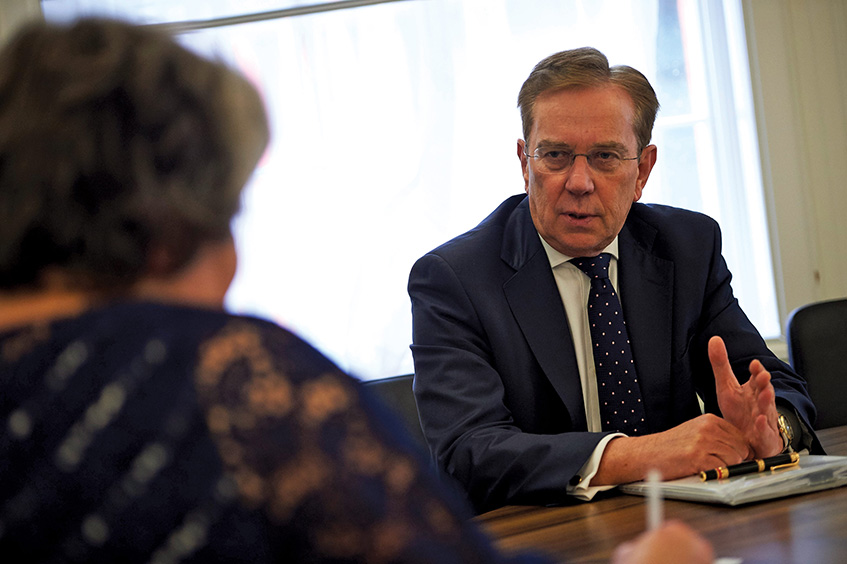 “I’m more convinced than ever before that the NHS is the best healthcare system. In terms of what you get for your investment, it’s better than anywhere else in the world”
“I’m more convinced than ever before that the NHS is the best healthcare system. In terms of what you get for your investment, it’s better than anywhere else in the world”
“I can think of a number of chief executives who, if they had invested more time in networking, might have had a second chance,” he adds.
He cites his own experience at UCLH as proof of this. When the wonderful but very pricey new hospital was opening, a sudden bill for £40m materialised, leaving the trust’s financial position looking bleak.
“I can think of many organisations where either the chief executive or the chair would have been sacked. But because of our reputation people had confidence in us, that we could sort it – which we did,” he says.
He also cites particular concerns about bullying and harassment, which seem to be on the rise in the NHS. He argues it’s important to distinguish between justifiable pressures to raise standards and pressuring people in a discriminatory and personal way.
“I find it one of the most difficult areas. There is a fine line between aspiring and achieving, targets and objectives, and bullying and harassment. You often find that organisations criticised for this are those with the best results,” he says.
Many of these organisations are in urban areas, where life is particularly stressful and health services are under particular strain, he says. “The higher the standard you aspire to, the more likely it is that people feel under pressure which may feel like they are being bullied and harassed.”
Despite these stresses and strains, Naylor remains an ardent supporter of the NHS model. “I’m more convinced than ever before that the NHS is the best healthcare system. In terms of what you get for your investment, it’s better than anywhere else in the world,” he says.
He challenges the doomsayers who claim the NHS is in a worse state than ever before, pointing out that when he started at UCLH, it was operating out of crumbling hospitals with three-year waits for cardiac surgery. That position has changed, both at UCLH and around the country. “But the expectations of the public have increased exponentially,” he warns. “People complain when they have to wait 18 weeks. Less than 16 years ago, they were waiting three years for outpatient appointments.”
But that does not mean he’s blind to the problems with the system today, or uncritical of what is happening. “I think all parties have to be honest about what can be delivered with the money that is voted for by Parliament,” he says. “It’s obvious that the amount of money we spend on healthcare is significantly less than the European average. If we want to maintain our position in the world rankings, we need to invest more money. The NHS needs money, but equally I think the NHS can become much more efficient.”
Opportunities to improve the model have been missed, he believes. He points out that, during the mid-Blair years, extra money ended up being spent on salaries rather than reform. And he regrets that foundation trusts, which he played a role in establishing, have lost their freedoms even over assets and capital.
He has repeatedly said that if 10% of hospitals are in deficit, the problem is likely to be with the trusts, but if 90% are in deficit, the problem probably lies with the system. “The trouble is, if you bail out hospitals when they overspend, it’s going to encourage them to overspend even more,” he warns. Ultimately, the government will have to write off some of the debts, he says, even if that makes some trusts which stay within budget feel disgruntled.
He suggests the NHS should be moving towards accountable care organisations (ACOs), combining hospitals and primary care in one organisation. And trusts need to be incentivised to deliver the Five Year Forward View, he says.
“We might end up with 100 ACOs that replace trusts… it would incentivise hospitals because they would be responsible for the whole patient pathway. So it would make sense to sell a building to invest in primary care. But sometimes the most challenging issues are cultural and it takes five years to change that in a meaningful way.”
Although Naylor’s decision to leave UCLH was announced last autumn and he was expected to step down earlier this year, he remained in post until the appointment of new chief executive Professor Marcel Levi.
“It’s a natural time to move on,” he says. “From when I left school, it took me 15 years to become a chief executive. I was in Birmingham for 15 years as a chief executive and then 15 years at UCLH. I thought, I’ve got 15 years left in me to hopefully make a difference in a non-executive career.
“If I had my time over again I would definitely do the same. It has been an enormous privilege – I have no regrets. Healthcare is such a rewarding environment to work in – rewarding for a number of reasons, but in particular because the vast majority of people you work with are highly dedicated and really want to get up in the morning and make a difference.”
Related News
-
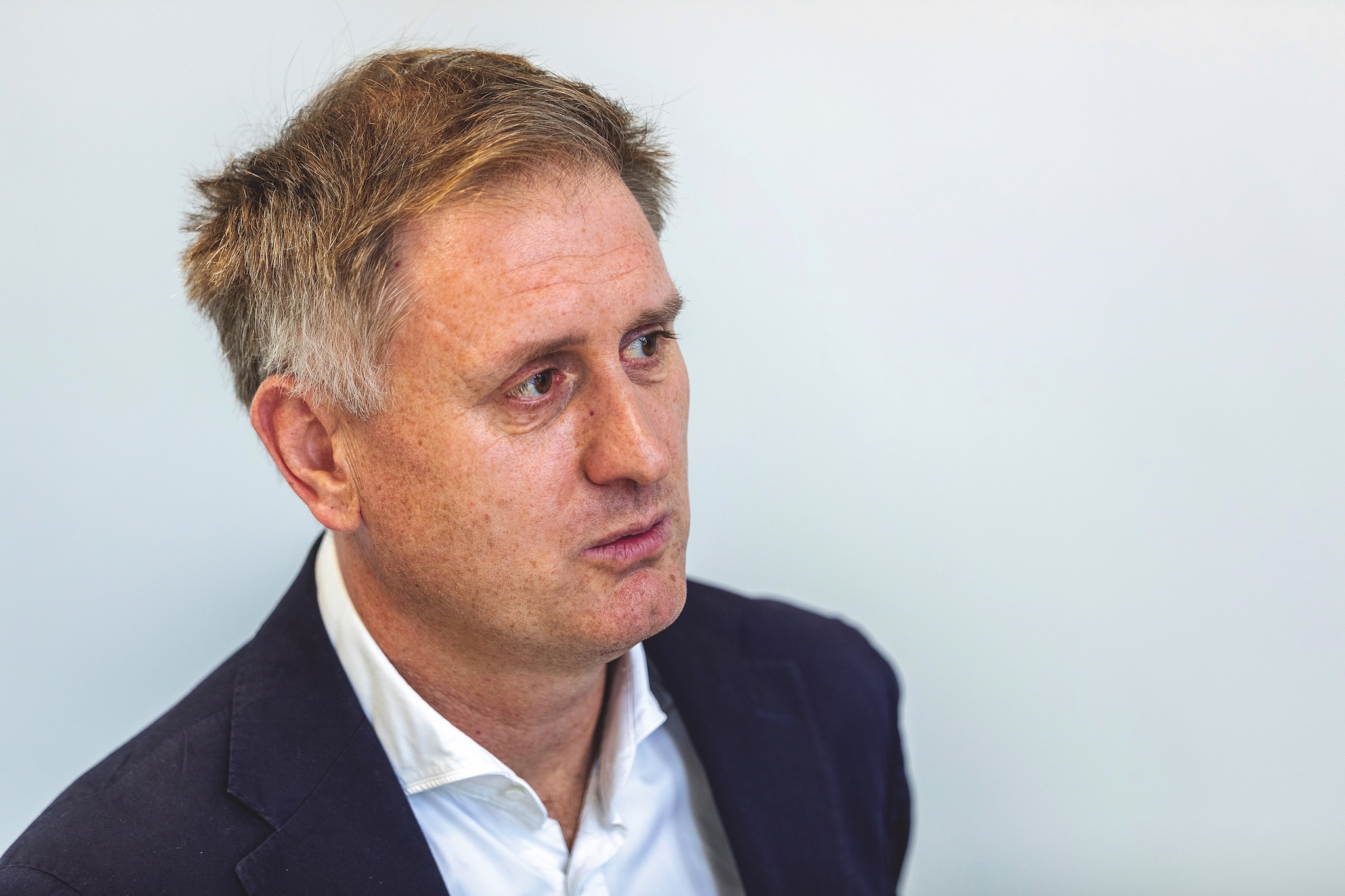
“Showing kindness and trust creates a virtuous circle – people respond well to that”
As chief executive of Suffolk and North East Essex, one of England’s most highly rated integrated care boards, Ed Garratt has pioneered a radically different approach to leadership – one based around kindness, trust and putting down deep roots in local communities. He talks to Healthcare Manager’s Matt Ross.
-
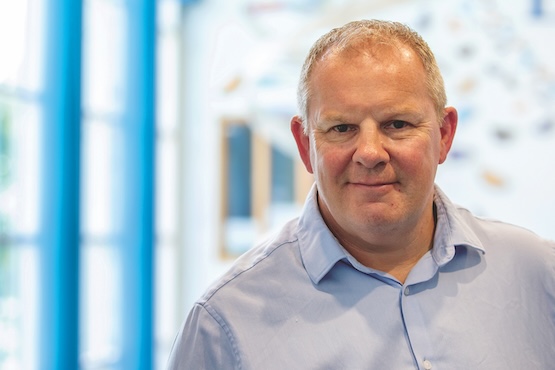
We need to give managers reasons to join the profession — not risks to avoid
Steve McManus’s work developing the leaders and managers the NHS needs for the 21st century has caught the eye of national leaders. The Royal Berkshire trust chief executive talks to Matt Ross about transforming services, developing leaders and the right way to regulate the management profession.
-
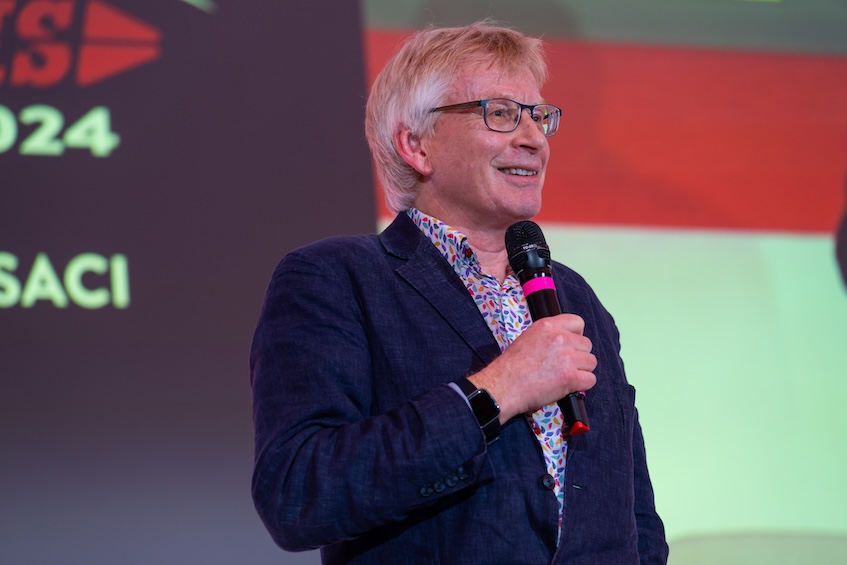
Interview: Dr Phil Hammond, doctor, comedian, health campaigner
Doctor, comedian, broadcaster, writer, health campaigner and politician manqué, Dr Phil Hammond is now drawing up a manifesto to rescue the NHS and boost the nation’s health. On the eve of a watershed general election for the UK, he spoke to Healthcare Manager’s Matt Ross.